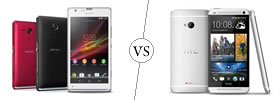Difference between Google Pixel and Pixel XL
Key difference: Google Pixel and Pixel XL are two phones that have been launched by Google in its new Pixel line of smartphones. The Google Pixel and Pixel XL are essentially the same phones; they have the same hardware, the same software, and everything else. The only difference between them is the fact that the Pixel XL is an XL version of Pixel, i.e. it is just bigger.
![]() Google Pixel and Pixel XL are two phones that have been launched by Google in its new Pixel line of smartphones. They are similar in nature to Google’s previous range, the Nexus line of phones. However, one significant difference between the previous drives and these devices is the fact that while the Nexus line of products had been created by Google in collaboration with another company, the Pixel is completely by Google. Both devices feature the pure Android operating software, while Google hired HTC to actually manufacture the devices.
Google Pixel and Pixel XL are two phones that have been launched by Google in its new Pixel line of smartphones. They are similar in nature to Google’s previous range, the Nexus line of phones. However, one significant difference between the previous drives and these devices is the fact that while the Nexus line of products had been created by Google in collaboration with another company, the Pixel is completely by Google. Both devices feature the pure Android operating software, while Google hired HTC to actually manufacture the devices.
The Google Pixel and Pixel XL are essentially the same phones; they have the same hardware, the same software, and everything else. The only difference between them is the fact that the Pixel XL is an XL version of Pixel, i.e. it is just bigger. Google Pixel XL has a larger screen with a higher resolution. The larger screen also translates into a larger size and slightly more weight for the Pixel XL.
Google Pixel features a 5 inch AMOLED Full HD (1920 x 1080) 441-ppi display with Gorilla Glass 4. Google Pixel XL in turn features a 5.5” AMOLED QHD (2560 x 1440) 534-ppi display with Gorilla Glass 4. Due to the larger screen, the Pixel XL has the dimensions of 6.09 in (154.72 mm) by 2.98 in (75.74 mm) and weights 5.92 oz (168 g), while the Pixel has the dimensions of 5.66 in (143.84 mm) by 2.74 in (69.54 mm) and weights 5.04 oz (143 g).
The Pixel XL also comes with a larger battery, a 3,450 mAh fast charging Li-Ion battery, as compared to the 2,770 mAh fast charging Li-Ion battery in the Pixel. The larger battery is presumably to compensate for the larger display which is bound to use more power.
Other than these superficial differences, the two phones are essentially the same. They both launched with the latest version of Android at the time, Android 7.1 Nougat, and as a Google device the phones will continue to receive updates as and when Android launches them.
![]() Additionally, the two devices have the same inner hardware. They both incorporate 2.15 GHz + 1.6 GHz, 64-Bit Quad-Core Qualcomm Snapdragon 821 processor and an Adreno 530 GPU. Both come with 4GB LPDDR4 RAM, and in two different memory variants: one with 32 GB internal memory, and another with 128 GB of internal memory.
Additionally, the two devices have the same inner hardware. They both incorporate 2.15 GHz + 1.6 GHz, 64-Bit Quad-Core Qualcomm Snapdragon 821 processor and an Adreno 530 GPU. Both come with 4GB LPDDR4 RAM, and in two different memory variants: one with 32 GB internal memory, and another with 128 GB of internal memory.
Both the device feature an 12.3 MP primary camera and f/2.0 aperture with 1.55 μm large pixels, with Phase Detection Auto-Focus (PDAF) and Laser Detection Auto-Focus (LDAF) for crisp quality. The front facing camera is an 8 MP camera with f/2.4 aperture and 1.4 µm pixels.
In addition to these, all the other hardware specifications are the name. Basically, the Pixel XL is just a slightly larger sized version of the Pixel. Google decided to launch two versions of the same phone in order to address the two different market segments: one that prefers larger screens and the other that does not.
Comparison between Google Pixel and Pixel XL:
|
|
Google Pixel |
Google Pixel XL |
|
Launch Date |
October 2016 |
|
|
Company |
|
|
|
Size |
Length: 5.66 in (143.84 mm) Width: 2.74 in (69.54 mm) Height: 0.29 in (7.31 mm) at bottom to 0.34 in (8.58 mm) at top |
Length: 6.09 in (154.72 mm) Width: 2.98 in (75.74 mm) Height: 0.29 in (7.31 mm) at bottom to 0.34 in (8.58 mm) at top |
|
Display |
Immersive 5.0" AMOLED Cinematic widescreen 16:9 aspect ratio |
Immersive 5.5” AMOLED Cinematic widescreen 16:9 aspect ratio |
|
Screen |
Full HD (1920 x 1080) 441-ppi display |
QHD (2560 x 1440) 534-ppi display |
|
Protection |
Corning Gorilla Glass 4 for durability Fingerprint- and smudge-resistant oleophobic coating |
|
|
Weight |
5.04 oz (143 g) |
5.92 oz (168 g) |
|
2G Network |
GSM 850 / 900 / 1800 / 1900 CDMA 800 / 1900 - USA, North America |
|
|
3G Network |
HSDPA 850 / 1700(AWS) / 1900 / 2100 – USA HSDPA 800 / 850 / 900 / 1700(AWS) / 1900 / 2100 – Global CDMA2000 1xEV-DO - USA, North America HSDPA 850 / 900 / 1700(AWS) / 1900 / 2100 - North America |
|
|
4G Network |
LTE band 1(2100), 2(1900), 3(1800), 4(1700/2100), 5(850), 7(2600), 8(900), 12(700), 13(700), 17(700), 18(800), 19(800), 20(800), 21(1500), 26(850), 28(700), 32(1500), 38(2600), 39(1900), 40(2300), 41(2500) – Global LTE band 1(2100), 2(1900), 3(1800), 4(1700/2100), 5(850), 7(2600), 8(900), 12(700), 13(700), 17(700), 20(800), 25(1900), 26(850), 28(700), 29(700), 30(2300), 41(2500) - USA, North America |
|
|
GUI |
Android |
|
|
CPU speed |
Quad-core (2x2.15 GHz Kryo & 2x1.6 GHz Kryo) |
|
|
GPU |
Adreno 530 |
|
|
OS |
Android 7.1 Nougat |
|
|
Chipset |
Qualcomm MSM8996 Snapdragon 821 |
|
|
RAM |
4GB LPDDR4 |
|
|
SIM Size |
Nano-SIM |
|
|
Internal Memory |
32/128 GB |
|
|
Expandable Memory |
No |
|
|
Sensors |
Android Sensor Hub |
|
|
Connectivity |
GPRS, EDGE, WLAN (Wi-Fi 802.11 a/b/g/n/ac), Bluetooth v4.2, USB v2.0 |
|
|
Data |
GSM / CDMA / HSPA / EVDO / LTE, WiFi, Bluetooth, GPS, NFC |
|
|
Speed |
HSPA 42.2/5.76 Mbps, LTE-A (3CA) Cat9 450/50 Mbps or LTE-A (3CA) Cat11 600/75 Mbps |
|
|
WLAN |
Wi-Fi 802.11 a/b/g/n/ac, dual-band, Wi-Fi Direct, DLNA, hotspot |
|
|
Bluetooth |
v4.2, A2DP, LE |
|
|
USB |
v3.0, Type-C 1.0 reversible connector |
|
|
Primary Camera |
Natural, broad-spectrum CRI-90 dual-LED flash |
|
|
Secondary Camera |
|
|
|
Video |
|
|
|
Camera Features |
1/2.3" sensor size, 1.55µm pixel size, geo-tagging, touch focus, face detection, HDR, panorama |
|
|
Sound Enhancement |
3 microphones (2 front, 1 rear) with noise cancellation |
|
|
Battery Capacity |
Non-removable Li-Ion 2770 mAh battery |
Non-removable Li-Ion 3450 mAh battery |
|
Stand-by |
Up to 456 hours |
Up to 552 hours |
|
Talk time |
Up to 26 hours |
Up to 32 hours |
|
Internet use |
Wi-Fi: Up to 13 hours LTE: Up to 13 hours |
Wi-Fi: Up to 14 hours LTE: Up to 14 hours |
|
Video playback |
Up to 13 hours |
Up to 14 hours |
|
Audio playback |
Up to 110 hours |
Up to 130 hours |
|
Fast Charging |
Up to 7 hours of use from only 15 minutes of charging |
|
|
Available Colors |
Silver, Black, Blue (Some Markets) |
|
|
Messaging |
SMS(threaded view), MMS, Email, Push Mail, IM |
|
|
Browser |
HTML5 |
|
|
Radio |
No |
|
|
GPS |
Location tracking by satellite with GPS and GLONASS |
|
|
Java |
No |
|
|
Additional Features |
RGB LED notification light for optional alerts Digital compass for superior navigation Fast battery charging MP4/H.264 player MP3/WAV/eAAC+ player Photo/video editor Document editor |
|
Reference: Google, GSMArena, Wikipedia, Trusted Reviews, Forbes, Android Central Image Courtesy: droid-life.com, techtimes.com









Add new comment